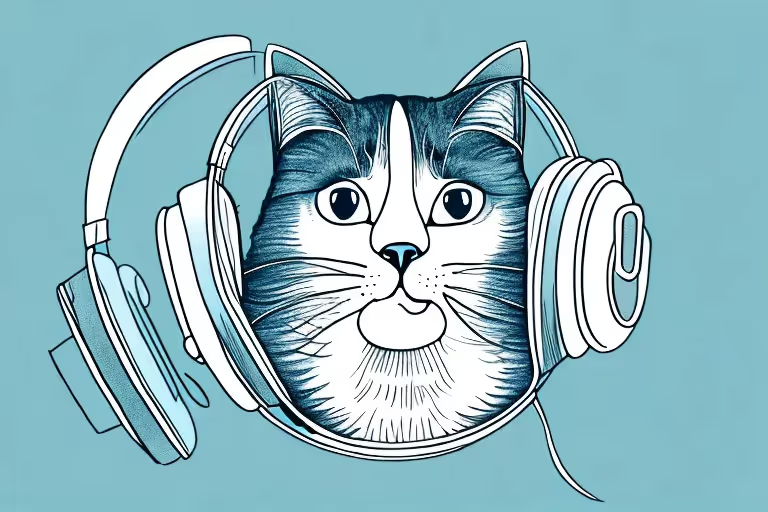In recent years, the use of Seroquel for sleep has gained popularity as a potential remedy for those struggling with insomnia and other sleep disorders. While Seroquel, also known as quetiapine, is approved for the treatment of certain mental health conditions, its off-label use as a sleep aid raises important questions about its safety and effectiveness. In this article, we will dive deep into the risks and controversies surrounding Seroquel for sleep, exploring the science behind its effects, potential side effects, and alternative options for those seeking a good night's rest.
Understanding Seroquel: Uses and Indications
What is Seroquel?
Before delving into the potential dangers of using Seroquel as a sleep aid, it is crucial to understand what this medication is. Seroquel belongs to a class of medications known as atypical antipsychotics, primarily prescribed for the treatment of schizophrenia, bipolar disorder, and depression.
Seroquel, also known by its generic name quetiapine, works by affecting the activity of certain chemicals in the brain. It helps to regulate the balance of neurotransmitters, such as dopamine and serotonin, which play a crucial role in mood, behavior, and cognition.
When prescribed for mental health conditions, Seroquel is typically used as part of a comprehensive treatment plan that may include therapy, counseling, and other interventions. It is not meant to be used as a standalone treatment.
Approved Uses of Seroquel
Seroquel's primary approved uses revolve around managing conditions such as bipolar disorder and schizophrenia. In the case of bipolar disorder, Seroquel can help stabilize mood swings, reduce manic episodes, and alleviate symptoms of depression. For schizophrenia, it can help reduce hallucinations, delusions, and other psychotic symptoms.
It is important to note that Seroquel is not a cure for these conditions. Rather, it is used to manage symptoms and improve the overall quality of life for individuals living with these mental health disorders.
Off-Label Use of Seroquel for Sleep
Despite its intended uses, many individuals have turned to Seroquel as a sleep aid due to its sedative effects. The drug's ability to promote drowsiness has led some to believe it could aid in falling asleep faster and maintaining a sound sleep throughout the night.
Off-label use refers to the use of a medication for a purpose other than what it has been approved for by regulatory authorities. While off-label use is not uncommon in medicine, it is important to recognize that using Seroquel as a sleep aid falls outside its approved indications.
There are several reasons why the off-label use of Seroquel for sleep raises concerns. Firstly, the sedative effects of the medication may not be appropriate for everyone. Each individual may respond differently to the drug, and there is a risk of experiencing unwanted side effects, such as daytime drowsiness, dizziness, and impaired cognitive function.
Additionally, using Seroquel for sleep without proper medical supervision may mask underlying sleep disorders or other health conditions that require specific treatment. It is essential to consult with a healthcare professional who can evaluate your sleep patterns, identify any underlying issues, and recommend appropriate interventions.
Furthermore, the long-term effects of using Seroquel as a sleep aid are not well understood. The medication is primarily studied and approved for the treatment of mental health conditions, and its safety and efficacy for long-term sleep use have not been extensively researched.
Overall, while Seroquel may have sedative effects that can aid in sleep, it is important to weigh the potential risks and benefits and consult with a healthcare professional before using it for this purpose. They can provide guidance based on your individual circumstances and help you explore alternative sleep aids or interventions that may be more suitable for your needs.
The Science Behind Seroquel and Sleep
Sleep is a fundamental aspect of human health and well-being. It is during sleep that our bodies and minds recharge, allowing us to function optimally during our waking hours. However, for many individuals, achieving a restful night's sleep can be a challenge. This is where medications like Seroquel come into play.
How Does Seroquel Affect Sleep?
Seroquel, also known as quetiapine, is an antipsychotic medication primarily used to treat conditions such as schizophrenia and bipolar disorder. However, one of its notable side effects is its sedative properties, which can induce sleepiness. This makes it an attractive option for individuals struggling with sleep disorders.
The mechanism of action of Seroquel in promoting sleep is complex and involves various neurotransmitters in the brain. The drug acts on specific receptors, blocking the transmission of certain chemicals that promote wakefulness. By modulating the activity of neurotransmitters such as histamine, Seroquel helps to induce sleep and promote a more restful night.
The Role of Dopamine and Serotonin
Two neurotransmitters that play a crucial role in sleep regulation are dopamine and serotonin. Dopamine is often associated with reward and pleasure, but it also contributes to wakefulness. Serotonin, on the other hand, is involved in mood regulation and has a calming effect on the brain.
Seroquel works by targeting these neurotransmitters, particularly by blocking certain receptors. By inhibiting the action of dopamine, Seroquel helps to reduce wakefulness and promote sedation. Additionally, by enhancing the effects of serotonin, Seroquel aids in sleep initiation and maintenance.
It is important to note that while Seroquel can be effective in promoting sleep, it should only be used under the guidance of a healthcare professional. Like any medication, it carries potential side effects and may not be suitable for everyone. Therefore, it is essential to discuss the benefits and risks with a healthcare provider before considering Seroquel as a sleep aid.
In conclusion, Seroquel's sedative properties and its ability to modulate neurotransmitters like histamine, dopamine, and serotonin make it an effective option for individuals struggling with sleep disorders. However, it is crucial to approach its use with caution and under medical supervision to ensure its safety and effectiveness.
Potential Risks and Side Effects of Seroquel
Common Side Effects
As with any medication, Seroquel comes with a range of potential side effects. Some common side effects include drowsiness, dizziness, dry mouth, constipation, weight gain, and blurred vision. It is important to note that each individual may react differently to the drug, and these side effects can vary in severity.
Serious Side Effects and Risks
Beyond the common side effects, Seroquel also poses more serious risks. Some individuals may experience a rare but life-threatening condition known as neuroleptic malignant syndrome (NMS), which can cause fever, muscle stiffness, confusion, and even organ failure. Additionally, Seroquel may increase the risk of metabolic syndrome, leading to weight gain, high blood sugar, and elevated cholesterol levels. These potential risks should not be taken lightly and should be considered before using Seroquel as a sleep aid.
The Controversy Surrounding Seroquel for Sleep
Medical Opinions on Off-Label Use
The use of Seroquel for sleep remains a subject of debate among medical professionals. While some doctors may prescribe it off-label for sleep disorders, others emphasize the need for caution due to the potential risks involved. It is crucial to consult with a healthcare provider and weigh the risks and benefits before considering Seroquel as a sleep aid.
Patient Experiences and Testimonials
Despite the mixed opinions among medical professionals, some individuals have reported positive experiences with Seroquel for sleep. However, it is essential to remember that personal experiences may vary significantly, and what works for one person may not work for another. Sharing experiences and testimonials can provide useful insights, but they should not replace professional medical advice.
Alternatives to Seroquel for Sleep Disorders
Non-Pharmaceutical Sleep Aids
For those seeking alternatives to Seroquel, non-pharmaceutical sleep aids may be worth exploring. These can include practices such as maintaining a consistent sleep routine, creating a relaxing bedtime environment, practicing relaxation techniques like meditation or deep breathing, and avoiding stimulants like caffeine close to bedtime. Additionally, cognitive-behavioral therapy for insomnia (CBT-I) has shown promising results in helping individuals overcome sleep disorders.
Other Prescription Sleep Medications
For individuals with chronic sleep disorders that significantly impact their quality of life, other prescription sleep medications may be worth considering. Your healthcare provider may recommend medications such as benzodiazepines, non-benzodiazepine sedative-hypnotics, or melatonin receptor agonists. These medications have their own set of benefits and potential side effects, which should be discussed thoroughly with a medical professional.
In conclusion, while Seroquel may offer temporary relief for individuals struggling with sleep disorders, its off-label use comes with potential risks and side effects that should not be ignored. The decision to use Seroquel as a sleep aid should always be made in consultation with a healthcare professional, who can evaluate individual circumstances and weigh the potential benefits against the possible dangers. Exploring alternative options, both non-pharmaceutical and other prescription sleep medications, can provide individuals with a wider perspective and a range of potential choices for addressing their sleep concerns.
Lastly, for individuals seeking a holistic approach to sleep improvement, the Aura Health App offers a variety of scientifically-backed resources designed to promote better sleep habits. From personalized sleep trackers to guided meditation and relaxation exercises, Aura provides a comprehensive platform to support your journey towards restful nights and renewed energy-filled days.
Aura is Your All In One App for Meditation, Mindfulness Wellbeing
Find peace every day with one app for your whole well-being. There is no one-size-fits-all solution to mental well-being. Aura is the first all-in-one wellness app that learns how to best help you. Discover an endless library of expert-created tracks for your well-being, all taught by the world’s best coaches, therapists, and storytellers. With Aura's personalized recommendations, you can find peace every morning, day and night.



.webp)






.avif)

%20(1).avif)


.avif)
.avif)
.webp)


.avif)


















































































































.avif)

















.svg)





.avif)



